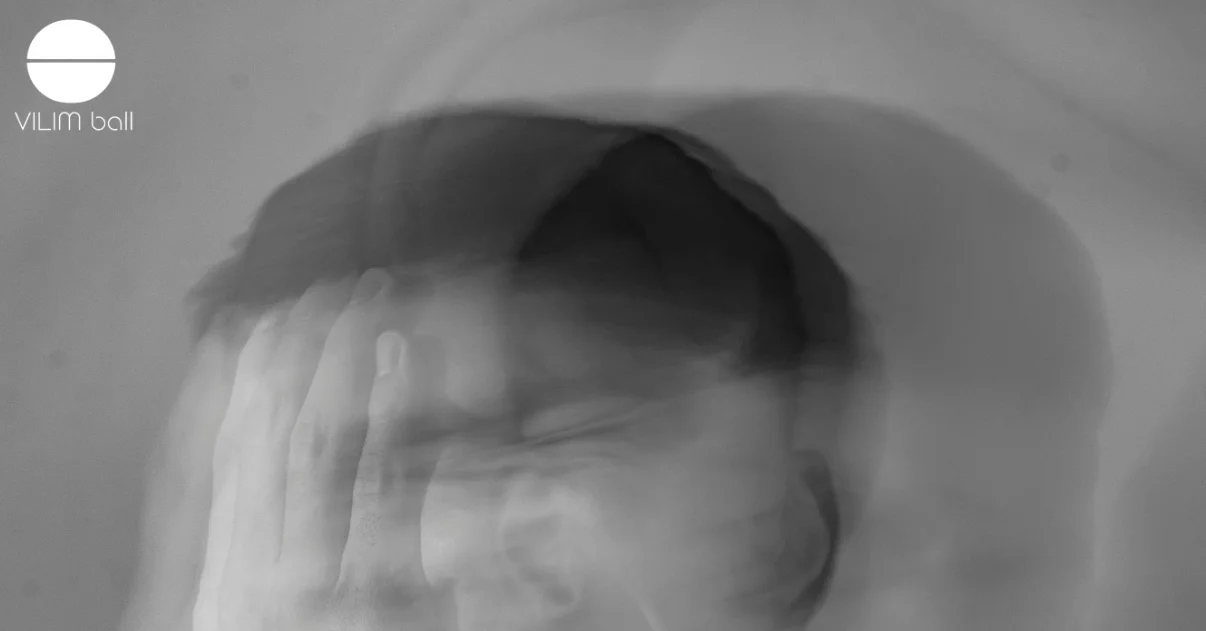Essential tremor and anxiety symptoms often go hand-in-glove. It's been well-known for centuries that feelings of tension, rigidity and worry can lead to voice and hand tremors, or make them worse, and vice versa.
The purpose of this guide is to discuss what anxiety disorders are, how the body responds to them, the role of tremors and some options you can use to improve these conditions.
What Is Anxiety?
Historically, anxiety was an essential survival strategy and response to stress. It was an uncomfortable feeling that made our ancestors rethink whether they wanted to take a specific course of action (such as approach a wild animal).
Unfortunately, the modern world has hijacked this natural response, leading to the development of long-term anxiety disorders. These occur when worry and dread fill the mind, out of proportion to the situation, and persist through time.
Worry is a natural human emotion that comes and goes (depending on the circumstances). However, conditions like generalized anxiety disorder are ongoing and may occur throughout most of the week. They may also lead to heightened responses, like social anxiety disorder or panic attacks, especially when dealing with health issues or large crowds of people.
How the Body Responds to Anxiety
The body responds to anxiety disorders in numerous ways. In evolutionary terms, this response was the "fight-or-flight" mechanism, designed to prepare the individual to escape danger, or deal with it head-on. Its goal was to motivate protective action.
Adrenaline
Adrenaline is a chemical signalling molecule and the primary driver of anxiety disorders. Adrenal glands release it in response to stress signals from the brain, priming the body for action. After a few seconds, it can lead to higher resting heart rate, superior blood flow to muscles, and greater situational awareness to deal with threats.
Tremors
Tremors are another common anxiety response. Feeling nervous or worrisome increases sympathetic nervous system activity, heightening arousal in some people in a way that causes various parts of the body to shake. For a subset of people, the voice can also sometimes be affected, causing it to wobble during speech.
Shaky Hands
Finally, tremors are related to shaky hands. These rhythmic, involuntary movements often reflect enhanced physiologic tremor—a sympathetic arousal effect—rather than simple muscle tension.
Shaky hands are particularly unpleasant when anxiety strikes because they are harder to hide than other symptoms. Shaking can cause additional distress, which is why it is so critical to begin managing symptoms early.
Can Anxiety Cause Tremors?
Anxiety disorders can indeed cause tremors. Physicians will often refer to these as "enhanced physiologic tremors" as they amplify the body's natural shaking (which is a normal part of being alive).
Anxiety-related tremors usually manifest at a rapid frequency and mainly affect the voice and hands. Many people who experience them have pre-existing conditions that bouts of anxiety make worse, leading to more extreme tremors than normal.
While anxiety-induced tremors seem scary, they don't usually indicate a serious health condition. Doctors will often perform tests to rule out underlying neurological disorders, but most sufferers can significantly improve with trigger management, evidence-based therapies, and—when needed—medication.
Essential Tremor and Anxiety

The relationship between essential tremor and anxiety disorders is slightly different. Essential tremor is a genetic condition that leads to involuntary, periodic hand-shaking. Researchers believe it is hereditary and worsens with time, making symptoms more pronounced as patients age.
Anxiety may act as a trigger for more extreme episodes of essential tremor (ET). For example, social anxiety disorder can make ET patients experience worse symptoms if they have social phobia.
Research also suggests a correlation between essential tremor and anxiety. The two conditions often overlap.
Triggers for Anxiety
Anxiety levels depend on the individual and vary according to the situation. As such, you'll want to learn what triggers yours and how to manage it.
Negative Thinking Patterns
Negative thinking patterns are one insidious trigger worth watching out for. Some people can get into a habit of always focusing on the worst possible outcome, instead of the likely one.
For example, you might worry that you will lose your job or you have a serious illness when those two outcomes are less likely than you think.
Psychologists sometimes call these patterns of behavior "rumination." Here, you constantly go back over negative thoughts in your mind, worrying about what might happen, further reinforcing them.
Low Blood Sugar
Another trigger could be low blood sugar. People who skip meals will often wind up feeling anxious, affecting their nervous system.
Caffeine Overload
Caffeine can also be an issue, leading some people to feel "jittery" and out of control. Therefore, choose alternatives, like green tea or chicory.
Abuse Or Loss
Finally, abuse or loss can serve as long-term triggers. Many people with events like these in their personal histories develop generalized anxiety disorder, where feeling anxiety is part of their emotional backdrop.
Anxiety-Triggering Situations
Sometimes, life will also throw situational curveballs at you that trigger your anxiety disorder.
Major Life Changes
One situational anxiety driver is major life changes. Moving to a new location or getting into a relationship can lead to feelings of panic, uncertainty, and stress.
Therefore, plan any life changes carefully. See if you can reduce your commitment level to manage your stress.
If you can't do this (in cases of health scares or divorce), you may need to use coping mechanisms (which we discuss these in more detail below).
Work-Related Issues
You may also find work-related issues trigger your anxiety. Conflicts with colleagues and tight deadlines may feel like constant pressure and a millstone around your neck.
Crowded Spaces
Another trigger could be environmental, such as crowded spaces. For example, you may not like using public transport or going to festivals where you find enormous gatherings of people.
Social Events
Finally, you may discover social events trigger your anxiety disorder. Going to parties or public speaking could leave you feeling judged, and you may not know how to cope.
How To Reduce Symptoms of Essential Tremor and Anxiety
So, what can you do to reduce essential tremor and anxiety symptoms and live your best life? That's what we discuss in this section.
Please note that methods for managing ET and anxiety are not one-size-fits-all. You should experiment to determine what works best for you.
Therapy and Medication
Many people start with therapy and medication. It's the most obvious choice and has been proven to help many people get better.
Cognitive behavioral therapy (CBT) is highly effective for anxiety. This technique helps you deal with negative rumination and get better with coping with life's challenges. Usually, courses last around 12 weeks, but you can return to therapists in the future if you think you need a top-up.
For essential tremor, you may need medications like beta-blockers and anticonvulsants. These work by interfering with the unwanted brain function and nervous signalling that leads to uncontrollable shaking.
Sometimes, professionals will also recommend SSRIs to manage both conditions together (anxiety directly and essential tremor indirectly). Discuss risks and alternatives with your clinician.
Exercise
Exercise is a more natural option you may want to explore. Moving the body and doing things which are hard and physical can release endorphins that counteract anxiety signals. This change in internal chemistry can, in turn, lead to greater muscle shaking control and reduce symptoms.
If you are new to exercise, start with around 30 minutes per day and increase your output from there. Try to avoid pushing yourself to the limit from day one as you could exceed your ability to recover.
Avoid Alcohol/Sedatives/Caffeine
It's also a good idea to avoid alcohol, caffeine and sedatives if you have essential tremor and anxiety. These compounds distort how the nervous system functions, potentially making shaking worse.
Alcohol is a good example of this in practice. When you first start drinking, you may notice tremors calm down. However, during the rebound phase (when the alcohol is out of the system), shaking can become worse.
Coffee works in the opposite way. When caffeine enters the body, it leads to heightened arousal, which often worsens anxiety and increases shaking. Like alcohol, it can also lead to dependency and interact adversely with other treatments.
Progressive Muscle Relaxation
You could also try exploring progressive muscle relaxation techniques. Approaches like deep breathing can reduce tightness and chest pain while improving overall quality of life. They can also be habit-forming, allowing you to reprogram your mind over time to be less susceptible to anxiety attacks.
Progressive Muscle Relaxation (PMR) is a century-old Western technique developed by Edmund Jacobson that many people use to reduce stress. It works by getting you to consciously focus on the location of body-wide tension and then release it, step by step. Meditations often begin at the feet and work their way to the head, relaxing each part of the body in turn. Some also go beyond skeletal muscle, relaxing the stomach, lungs, and other organs.
Usually, progressive muscle relaxation sessions take 20 to 30 minutes to complete. By the end, you should feel a reduction in tension and essential tremor, making panic disorder less likely.
Employing Relaxation Techniques
Deep breathing may also be something you want to focus on specifically. Research shows that it activates the "rest and digest" parasympathetic nervous system, flipping your body out of fight-or-flight mode.
Most people use the 4-7-8 method for deep breathing, where they breathe in for 4 seconds, hold for 7 seconds, and then breathe out for 8 seconds. Several rounds of this can put the body into a deep state of relaxation, reducing anxiety and tremors it may cause.
Eat Healthily and Sleep Well
Healthy eating, natural remedies and quality sleep is also worthwhile if you have anxiety and essential tremor ET. You want to get the recommended 7 to 9 hours sleep per night and ensure you eat plenty of nutrient-dense, real foods, like greens, beans, wholegrains, fruits, and mushrooms. Focus on foods that support brain health, like those high in omega-3s and magnesium. These can reduce blood sugar spikes and leave you feeling calm and composed throughout the day.
Vibrating Ball Therapy
While therapy and lifestyle changes can be helpful, the non-invasive device VILIM ball can also offer relief. It provides neuromodulation therapy and is able to temporarily reduce hand tremors caused by essential tremor and Parkinson's disease.
Portable and simple to integrate into day-to-day living, VILIM ball offers support when you need it most at home, in the office or traveling. This device implements artificial intelligence (AI) algorithms, which analyze tremors and adapt to each patient individually.
Find out more about how VILIM ball can assist you in managing tremors in your daily life here.
Deep Brain Stimulation
Deep brain stimulation is a surgery used for essential tremor only when medications don’t help enough. Doctors place thin wires in a movement-control area of the brain to steady the shaking. It’s not a standard treatment for anxiety.
If you've tried many of the other approaches listed here but still get heart palpitations or a constant sense of impending doom, you may want to explore this option. It can be a powerful way to manage multiple movement disorders and make you feel better internally at the same time.
Takeaways: Dealing with Anxiety and Essential Tremor
Essential tremor usually has a genetic component, which is why it is critical to go to your healthcare professional for a proper and thorough diagnosis. However, anxiety can make it worse. The more stress and tension in your body, the more likely it is that you will develop shaky hands.
The good news is that interventions that deal with one of these issues usually manage both. For example, SSRIs can target tremors and feelings of anxiety at the same time.
If you have ET and anxiety, it is critical to document your triggers. Figuring out what causes your symptoms to worsen is vital.
If you can make modest lifestyle tweaks, that's also useful. Exercising more or engaging in proven relaxation methods can have a profound effect and bring you to a better place emotionally. As part of this, you might want to experiment with eliminating caffeine and alcohol, as these substances can disrupt proper nervous functioning.
Finally, no matter how bad your ET and anxiety symptoms might seem, there are always doctors and support groups who can help you. You're not alone in this!



Share:
Essential tremor and Parkinson's differences
Why Do I Wake Up Shaking? Causes, Symptoms & What to Do